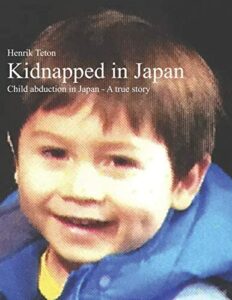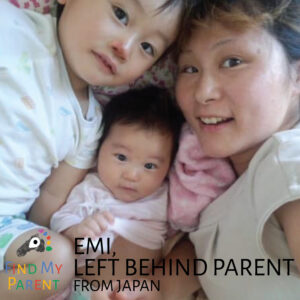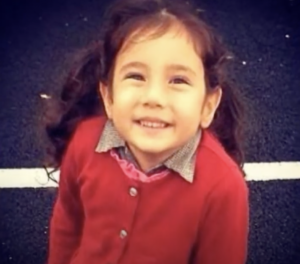
Two children abducted to South Korea
Check out full story and updates at https://november13.org/en/index.html This is the story of an international parental child abduction which has been going on for almost three years.
Policy Brief: Strengthening Australia’s Consular Response to Parental Separation in Japan
Prepared by Daniel Madden, 21 June 2025
Prepared for the Minister for Foreign Affairs, the Attorney-General, and other Government Departments and Committees
Author: Daniel Madden
Date: 21 June 2025
Background
My daughter, Matilda Haruka Madden, is an Australian citizen by birth. She has lived in Japan since 2010 and remained there following my divorce from her mother in 2013. Since 2016, I have had no contact whatsoever — not even confirmation that she is alive. Matilda turned 18 in April 2025.
Despite my daughter’s citizenship, I have no legal path to contact her or confirm her safety.
Japan’s sole custody system, under Article 819 of its Civil Code, terminates the legal relationship between a child and the non-custodial parent upon divorce. This legal framework has contributed to the permanent separation of thousands of children from one parent in cross-border cases. Japan remains an outlier among developed nations in maintaining this regime and in continuing to restrict post-divorce parental access.
DFAT formally records at least 89 Australian parents who have been permanently cut off from their children in Japan. To the best of my knowledge, my case makes 90. Global figures since 1992 suggest over 158,000 cases of international parental child abduction, according to international estimates.
The United States Department of State has for years listed Japan as demonstrating a “pattern of noncompliance” with the Hague Convention on the Civil Aspects of International Child Abduction. France, Canada, Germany, and Italy have lodged formal diplomatic protests in response to Japan’s failure to ensure contact rights for non-custodial parents. In 2020, the European Parliament passed a resolution urging Japan to reform its custody laws in line with international norms. Meanwhile, the United Kingdom has issued explicit travel warnings noting that access to children in Japan depends entirely on the goodwill of the custodial parent.
Japan has passed legislation to allow joint custody after divorce, effective by 2026. It will not be automatic: joint custody will require either mutual parental agreement or a court ruling based on the child’s best interests. The outcome remains discretionary. Crucially, the government has not confirmed whether the law will apply retrospectively. Despite media speculation, no official guidance has been issued. For parents already cut off from their children, the reforms provide no guaranteed path to reunification.
I am one of those parents.
Current DFAT Position
In early 2025, I wrote to DFAT – specifically to the Consular Section of the Australian Embassy in Tokyo – to inquire whether consular officials could pass on a neutral message of support to my daughter and confirm her wellbeing. DFAT initially advised that it would not take this step, citing privacy law and diplomatic sensitivities. Only after I submitted a formal request for review was the matter reopened for consideration. I understand that DFAT has agreed to keep my contact details and message on file in case Matilda initiates contact. This, however, cannot be considered meaningful action in the face of permanent estrangement.
What I’m Asking For
I am asking the Australian Government to adopt a principled and measured response to the problem of permanent parental estrangement. This does not require dramatic reform – only the will to act on values we already claim to uphold.
Specifically, I ask the Government to:
1. Permit neutral messages of support and wellbeing to be passed on through consular channels where permanent separation has occurred and the child is an Australian citizen. This may include a written note stored and transmitted through formal channels and a request for life confirmation via the local municipality.
2. Apply stronger bilateral pressure on Japan to reform its custody and access laws, including retrospective recognition of the rights of non-custodial parents. This could include coordinated statements from like-minded countries, diplomatic démarches, or tied cooperation measures. Countries such as France, Germany, and Italy have already taken these steps in recent years.
3. Issue a formal warning on Smartraveller regarding the risk of permanent separation for Australian parents considering travel to or co-residence in Japan with children. Smartraveller correctly notes that “joint custody of a child after divorce is currently not a legal option, and there are limits to access for a non-custodial parent,” but it stops short of warning that this can result in permanent estrangement – even for Australian citizens. Other governments have adopted stronger, clearer messaging to protect their citizens. Australia should match the standard set by peers such as the United Kingdom.
Why This Matters
This is not only about my daughter. It is about preventing the same harm from recurring – and upholding Australia’s responsibility to its citizens abroad. DFAT’s own Consular Services Charter commits to “provide you with all available information relevant to your case” and to “explain clearly how we can help.” These responsibilities are particularly important in child custody disputes involving foreign legal systems. They should extend, in part, to pursuing reform where international partners are not meeting their obligations – and to ensuring that Australian agencies do not become passive participants in systems that inflict permanent separation.
When I last travelled to Japan in 2016, my ex-wife threatened to involve the police when I attempted to say goodbye to my daughter. I have not seen or heard from her since. My experience is not unique. The cost of silence in these cases is not only legal, but deeply human.
These recommendations do not call for sweeping new powers, but for a measured policy shift that affirms Australia’s stated commitment to human rights and consular fairness. A more detailed legal and policy analysis – including Australia’s obligations under the Hague Convention and the UN Convention on the Rights of the Child – is available on request.
References
1. Civil Code of Japan, Article 819. Available via Japanese Law Translation, Ministry of Justice, Japan. https://www.japaneselawtranslation.go.jp/en/laws/view/3613
2. U.S. Department of State. 2023 Annual Report on International Child Abduction – Japan. https://travel.state.gov/content/travel/en/International-Parental-Child-Abduction/for-providers/legal-reports.html
3. European Parliament. European Parliament resolution of 12 February 2020 on Japan’s child abduction cases. 2020/2702(RSP). https://www.europarl.europa.eu/doceo/document/TA-9
2020-0034_EN.html
4. UK Government, Foreign Travel Advice – Japan. https://www.gov.uk/foreign-travel-advice/japan
5. Australian Government, Smartraveller. “Japan – Family Law.” Accessed June 2025.
https://www.smartraveller.gov.au/destinations/asia/japan
6. Australian Government, Department of Foreign Affairs and Trade. Consular Services Charter.
https://www.dfat.gov.au/consular-consular-services-charter
7. Figure regarding DFAT’s record of 89 Australian parents is based on private correspondence with DFAT, 2025.

Check out full story and updates at https://november13.org/en/index.html This is the story of an international parental child abduction which has been going on for almost three years.

My son was kidnapped during a family vacation in Japan, just a few days prior to our scheduled return home to Canada. I was taking

Two children abducted from the house in Tokyo by their father Abduction date: August 10th, 2013 My Son Towa – 2 years old (33-month-old) of

I don’t know what I should say to you, or were I should start, You were taken from me just before your 5th Birthday, which broke

April 2011 was the last time I saw my daughter, Alisa Sakurai Cameron. The last time I heard, she was staying at her grandparent’s home